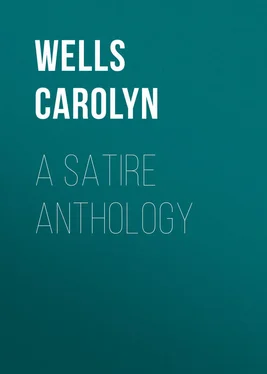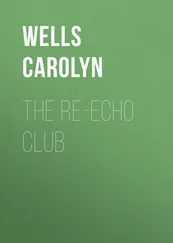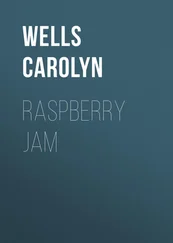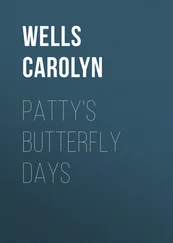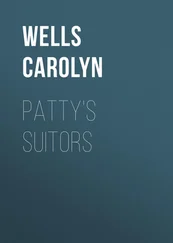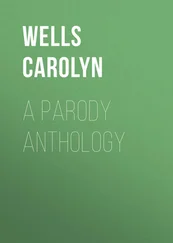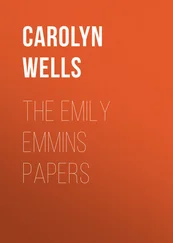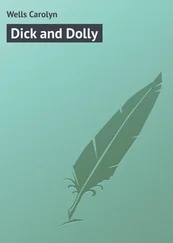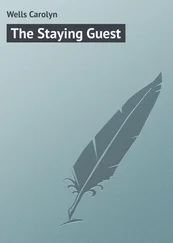Carolyn Wells - A Satire Anthology
Здесь есть возможность читать онлайн «Carolyn Wells - A Satire Anthology» — ознакомительный отрывок электронной книги совершенно бесплатно, а после прочтения отрывка купить полную версию. В некоторых случаях можно слушать аудио, скачать через торрент в формате fb2 и присутствует краткое содержание. Жанр: Юмористические книги, foreign_humor, на английском языке. Описание произведения, (предисловие) а так же отзывы посетителей доступны на портале библиотеки ЛибКат.
- Название:A Satire Anthology
- Автор:
- Жанр:
- Год:неизвестен
- ISBN:нет данных
- Рейтинг книги:5 / 5. Голосов: 1
-
Избранное:Добавить в избранное
- Отзывы:
-
Ваша оценка:
- 100
- 1
- 2
- 3
- 4
- 5
A Satire Anthology: краткое содержание, описание и аннотация
Предлагаем к чтению аннотацию, описание, краткое содержание или предисловие (зависит от того, что написал сам автор книги «A Satire Anthology»). Если вы не нашли необходимую информацию о книге — напишите в комментариях, мы постараемся отыскать её.
A Satire Anthology — читать онлайн ознакомительный отрывок
Ниже представлен текст книги, разбитый по страницам. Система сохранения места последней прочитанной страницы, позволяет с удобством читать онлайн бесплатно книгу «A Satire Anthology», без необходимости каждый раз заново искать на чём Вы остановились. Поставьте закладку, и сможете в любой момент перейти на страницу, на которой закончили чтение.
Интервал:
Закладка:
Oh, had I a voice that was stronger than steel,
With twice fifty tongues to express what I feel,
And as many good mouths, yet I never could utter
All the speeches my lord made to Lady Bunbutter!
So polite all the time, that he ne’er touched a bit,
While she ate up his rolls and applauded his wit;
For they tell me that men of true taste, when they treat,
Should talk a great deal, but they never should eat;
And if that be the fashion, I never will give
Any grand entertainment as long as I live;
For I’m of opinion, ’tis proper to cheer
The stomach and bowels as well as the ear.
Nor me did the charming concerto of Abel
Regale like the breakfast I saw on the table;
I freely will own I the muffins preferred
To all the genteel conversation I heard.
E’en though I’d the honour of sitting between
My Lady Stuff-damask and Peggy Moreen,
Who both flew to Bath in the nightly machine.
Cries Peggy: “This place is enchantingly pretty;
We never can see such a thing in the city.
You may spend all your lifetime in Cateaton Street,
And never so civil a gentleman meet;
You may talk what you please, you may search London through,
You may go to Carlisle’s, and to Almack’s, too,
And I’ll give you my head if you find such a host,
For coffee, tea, chocolate, butter, and toast.
How he welcomes at once all the world and his wife,
And how civil to folks he ne’er saw in his life!”
“These horns,” cries my lady, “so tickle one’s ear,
Lord! what would I give that Sir Simon was here!
To the next public breakfast Sir Simon shall go,
For I find here are folks one may venture to know.
Sir Simon would gladly his lordship attend,
And my lord would be pleased with so cheerful a friend.”
So, when we had wasted more bread at a breakfast
Than the poor of our parish have ate for this week past,
I saw, all at once, a prodigious great throng
Come bustling, and rustling, and jostling along;
For his lordship was pleased that the company now
To my Lady Bunbutter should courtesy and bow;
And my lady was pleased, too, and seemed vastly proud
At once to receive all the thanks of a crowd.
And when, like Chaldeans, we all had adored
This beautiful image set up by my lord,
Some few insignificant folk went away,
Just to follow the employments and calls of the day;
But those who knew better their time how to spend,
The fiddling and dancing all chose to attend.
Miss Clunch and Sir Toby performed a cotillion,
Just the same as our Susan and Bob the postilion;
All the while her mamma was expressing her joy
That her daughter the morning so well could employ.
Now, why should the Muse, my dear mother, relate
The misfortunes that fall to the lot of the great?
As homeward we came, ’tis with sorrow you’ll hear
What a dreadful disaster attended the peer;
For whether some envious god had decreed
That a naiad should long to ennoble the breed,
Or whether his lordship was charmed to behold
His face in the stream, like Narcissus of old,
In handing old Lady B – and daughter,
This obsequious lord tumbled into the water;
But a nymph of the flood brought him safe to the boat,
And I left all the ladies a-cleaning his coat.
AN ELEGY ON THE DEATH OF A MAD DOG
GOOD people all, of every sort,
Give ear unto my song;
And if you find it wondrous short
It cannot hold you long.
In Islington there was a man
Of whom the world might say
That still a godly race he ran
Whene’er he went to pray.
A kind and gentle heart he had,
To comfort friends and foes;
The naked every day he clad,
When he put on his clothes.
And in that town a dog was found,
As many dogs there be,
Both mongrel, puppy, whelp, and hound,
And curs of low degree.
This dog and man at first were friends,
But when a pique began,
The dog, to gain his private ends,
Went mad, and bit the man.
Around from all the neighbouring streets
The wondering neighbours ran,
And swore the dog had lost his wits
To bite so good a man.
The wound it seemed both sore and sad
To every Christian eye;
And while they swore the dog was mad,
They swore the man would die.
But soon a wonder came to light,
That show’d the rogues they lied:
The man recover’d of the bite,
The dog it was that died.
ON SMOLLETT
WHENCE could arise this mighty critic spleen,
The muse a trifler, and her theme so mean?
What had I done that angry Heaven should send
The bitterest foe where most I wished a friend?
Oft hath my tongue been wanton at thy name,
And hailed the honours of thy matchless fame.
For me let hoary Fielding bite the ground,
So nobler Pickle stand superbly bound;
From Livy’s temples tear the historic crown,
Which with more justice blooms upon thine own.
Compared with thee, be all life-writers dumb,
But he who wrote the life of Tommy Thumb.
Who ever read “The Regicide” but swore
The author wrote as man ne’er wrote before?
Others for plots and under-plots may call;
Here’s the right method – have no plot at all!
THE UNCERTAIN MAN
DUBIUS is such a scrupulous good man —
Yes, you may catch him tripping, if you can.
He would not with a peremptory tone
Assert the nose upon his face his own;
With hesitation admirably slow,
He humbly hopes – presumes – it may be so.
His evidence, if he were called by law
To swear to some enormity he saw,
For want of prominence and just belief,
Would hang an honest man and save a thief.
Through constant dread of giving truth offence,
He ties up all his hearers in suspense;
Knows what he knows as if he knew it not;
What he remembers, seems to have forgot;
His sole opinion, whatsoe’er befall,
Centring at last in having none at all.
A FAITHFUL PICTURE OF ORDINARY SOCIETY
THE circle formed, we sit in silent state,
Like figures drawn upon a dial-plate.
“Yes, ma’am” and “No, ma’am” uttered softly, show
Every five minutes how the minutes go.
Each individual, suffering a constraint —
Poetry may, but colours cannot, paint —
As if in close committee on the sky,
Reports it hot or cold, or wet or dry,
And finds a changing clime a happy source
Of wise reflection and well-timed discourse.
We next inquire, but softly and by stealth,
Like conservators of the public health,
Of epidemic throats, if such there are
Of coughs and rheums, and phthisic and catarrh.
That theme exhausted, a wide chasm ensues,
Filled up at last with interesting news:
Who danced with whom, and who are like to wed;
And who is hanged, and who is brought to bed,
But fear to call a more important cause,
As if ’twere treason against English laws.
The visit paid, with ecstasy we come,
As from a seven years’ transportation, home
And there resume an unembarrassed brow,
Recovering what we lost we know not how,
The faculties that seemed reduced to naught,
Expression, and the privilege of thought.
ON JOHNSON
I OWN I like not Johnson’s turgid style,
That gives an inch th’ importance of a mile;
Casts of manure a wagon-load around,
To raise a simple daisy from the ground;
Uplifts the club of Hercules – for what?
To crush a butterfly or brain a gnat;
Creates a whirlwind from the earth, to draw
A goose’s feather or exalt a straw;
Sets wheels on wheels in motion – such a clatter —
To force up one poor nipperkin of water;
Bids ocean labour with tremendous roar
To heave a cockle-shell upon the shore;
Alike in every theme his pompous art,
Heaven’s awful thunder or a rumbling cart!
Интервал:
Закладка:
Похожие книги на «A Satire Anthology»
Представляем Вашему вниманию похожие книги на «A Satire Anthology» списком для выбора. Мы отобрали схожую по названию и смыслу литературу в надежде предоставить читателям больше вариантов отыскать новые, интересные, ещё непрочитанные произведения.
Обсуждение, отзывы о книге «A Satire Anthology» и просто собственные мнения читателей. Оставьте ваши комментарии, напишите, что Вы думаете о произведении, его смысле или главных героях. Укажите что конкретно понравилось, а что нет, и почему Вы так считаете.
